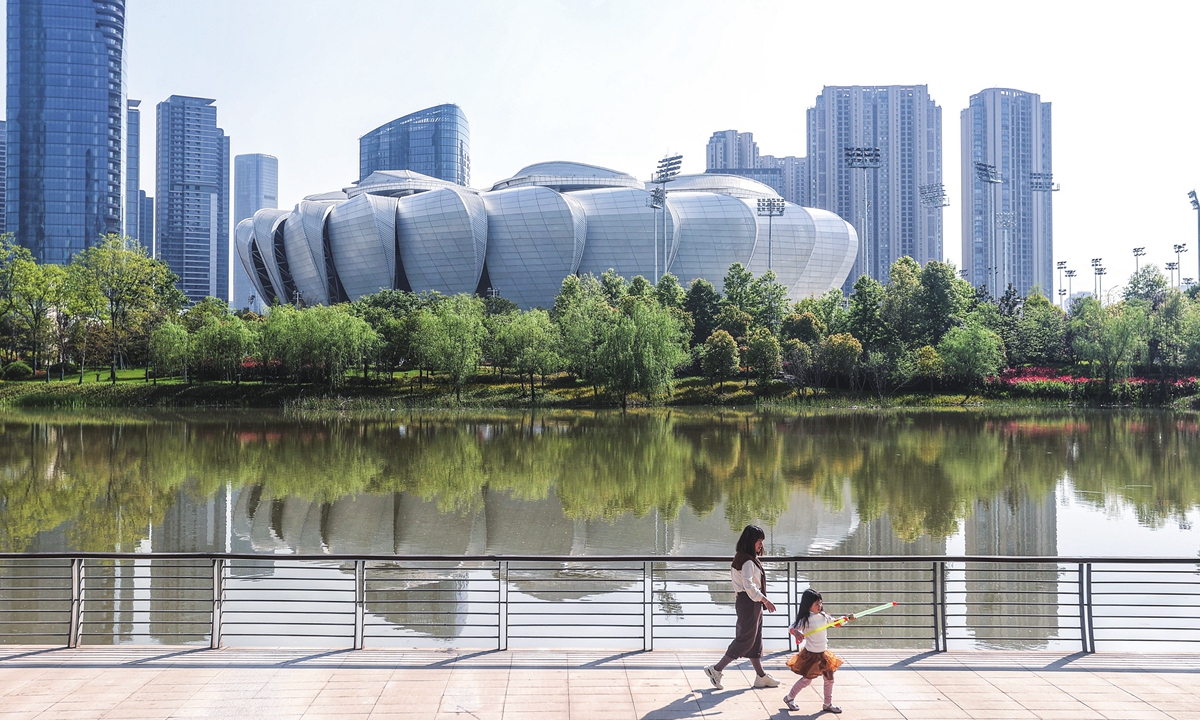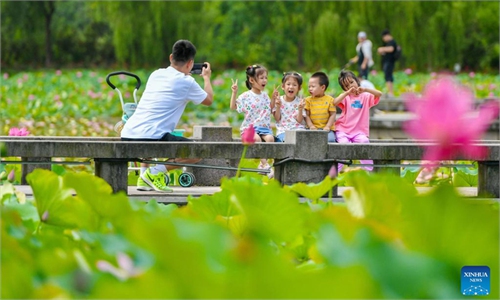
Hangzhou Olympic Sports Centre Tennis Centre, nicknamed "the Small Lotus" in the background Photo: Cui Meng/GT
The Hangzhou Municipal Health Commission in East China's Zhejiang Province recently announced that in order to further improve the supporting measures of the birth policy and reduce the burden of childbearing, the city will implement a child-rearing subsidy policy by offering a one-time subsidy of 20,000 yuan ($2783.5) for families with three children.
The subsidy is divided into two categories, maternity subsidy and childcare subsidy, which are in the form of one-time cash payments.
For the maternity subsidy, couples will be given a one-time subsidy of 2,000 yuan for birth of two children, and a one-time subsidy of 5,000 yuan for birth of three children. Births of multiple children are counted separately according to the sequence of the children.
For the childcare subsidy, families with two children will be given a one-time subsidy of 5,000 yuan, while families with three children will be given a one-time subsidy of 20,000 yuan.
These measures will come into force on September 10, 2023.
Besides Hangzhou, according to the official WeChat account of the Health Bureau of Yongsheng county, Lijiang, Southwest China's Yunnan Province on Monday, for families having a second child between January 1, 2023 and March 31, 2023, a one-time birth subsidy of 2,000 yuan and a child care subsidy of 800 yuan and a one-time birth subsidy of 5,000 yuan and a child care subsidy of 800 yuan respectively were issued to families having a second and third child.
A total of 456,600 yuan in one-time maternity subsidies and childcare subsidies have been successfully issued to the recipients of individual social security cards in 145 households. Authorities said it shows the effects of the county's birth support policy.
At present, two-child families account for the vast majority of the groups benefitting from the birth support policy in Yunnan.


